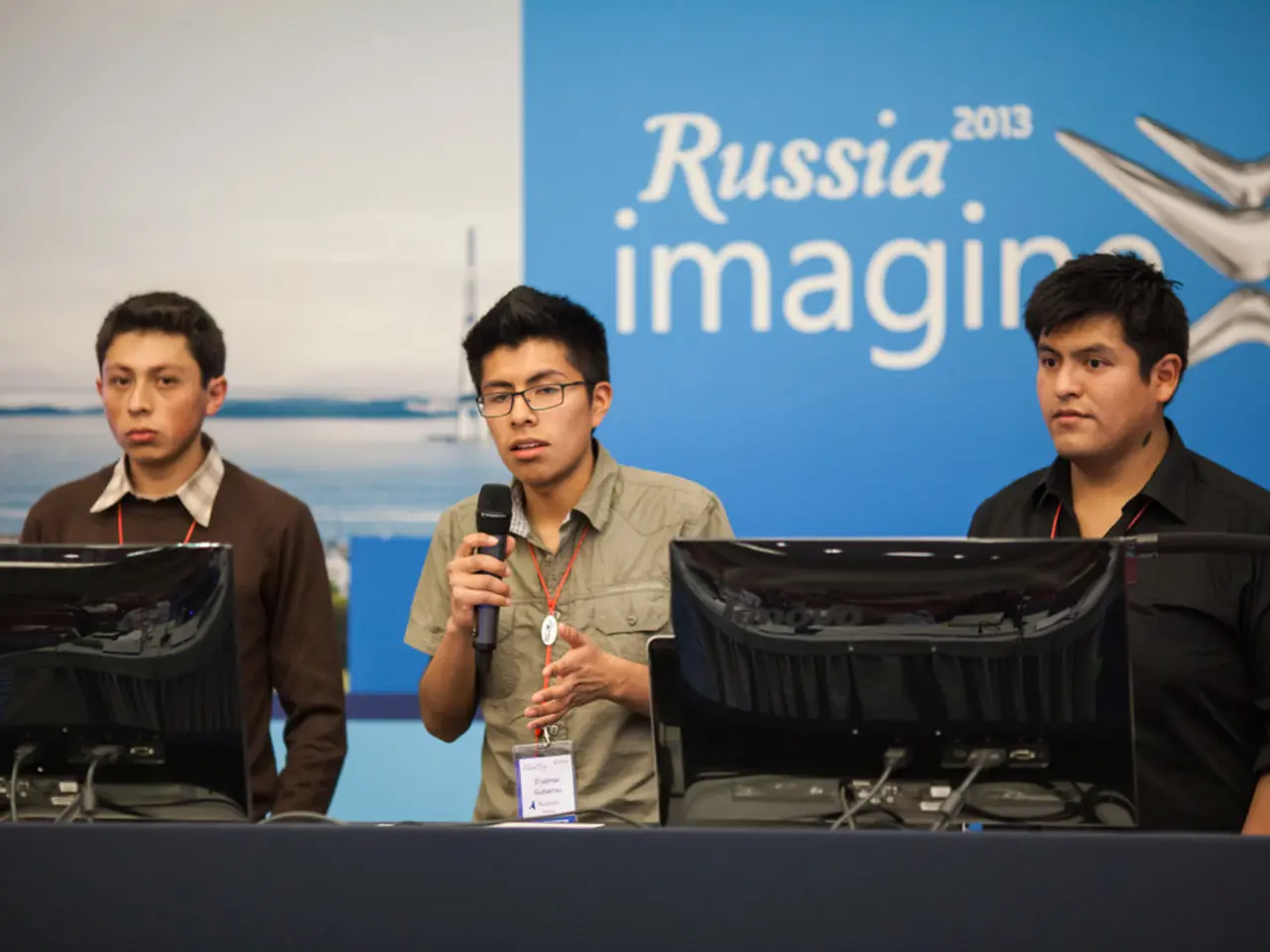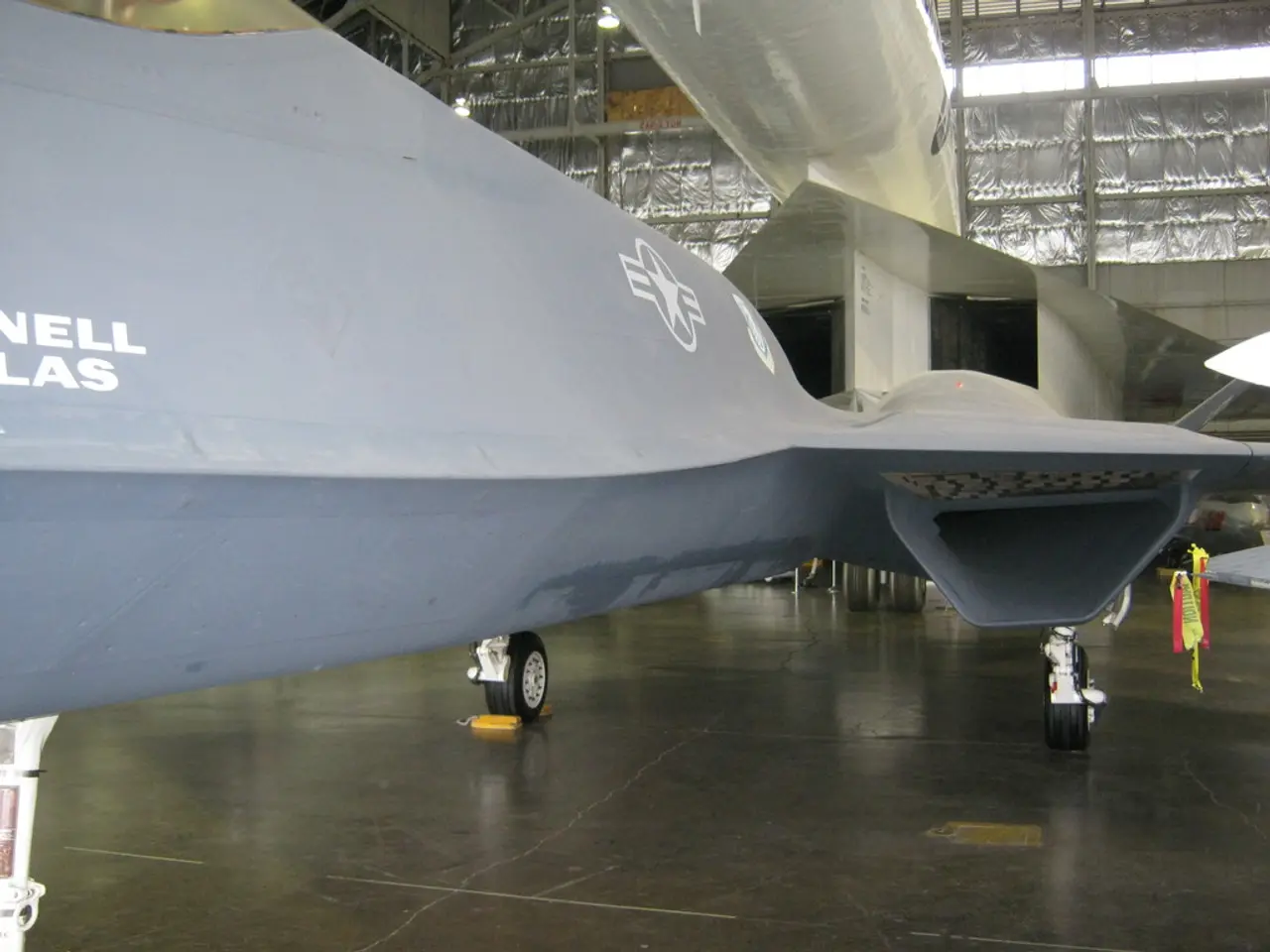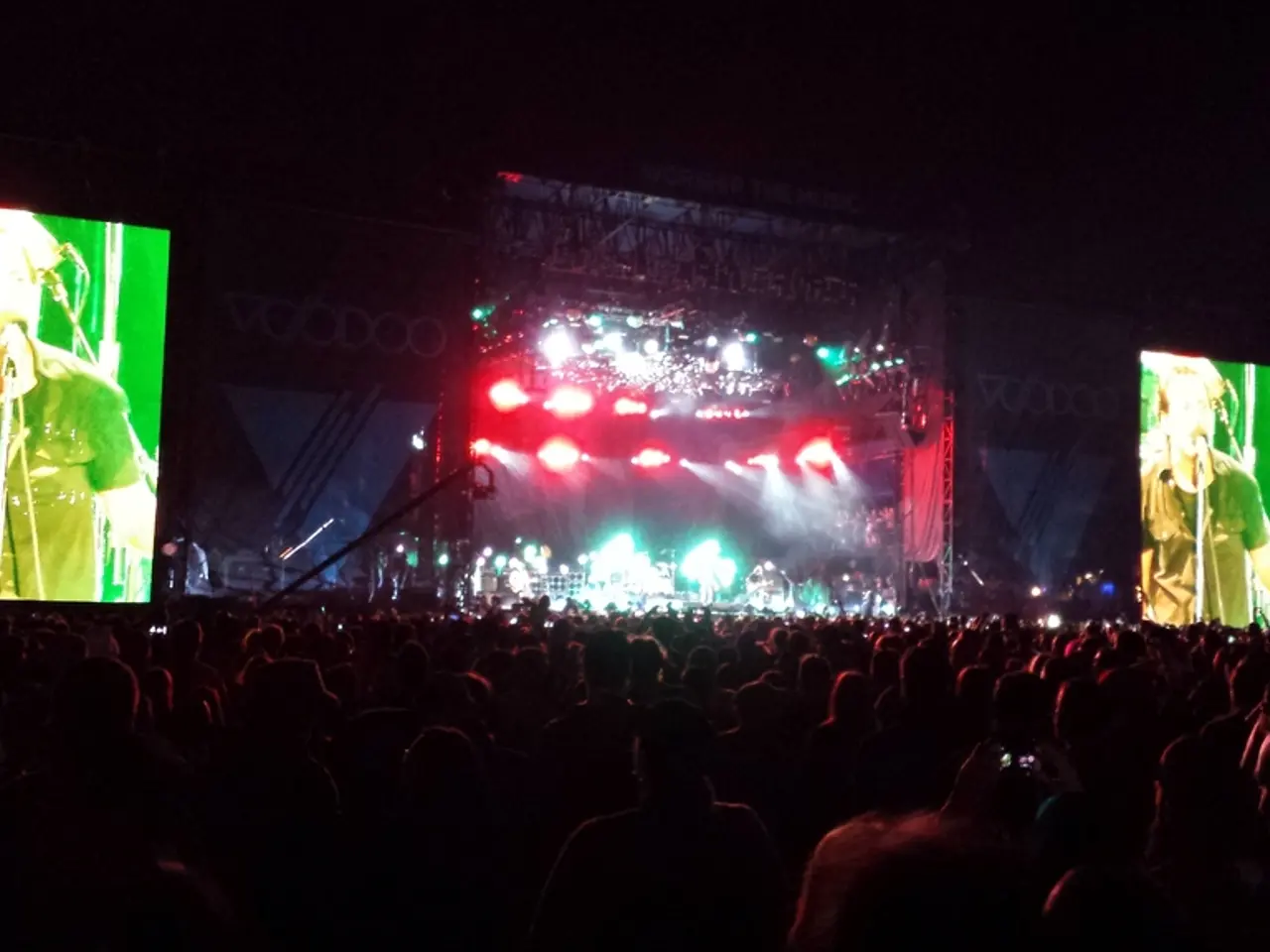Tough Talks Ahead: Putin's Conditions for Discussions
- 3 Min Read
Open Discussion Proposed: Potential Dialogue Extends to All Parties, Including President Zelensky and Putin - Open Dialogue Proposed by Putin, Including Possible Discussion with Zelensky
Things are heating up in the political arena as Russian President Vladimir Putin states he's open to talks with German Chancellor Friedrich Merz and Ukrainian President Volodymyr Zelenskyy, albeit under strict conditions.
Russia Views Germany as a Foe
Putin spoke to German news agency DPA, expressing his thoughts about Merz. Despite Merz calling for a ceasefire in the ongoing conflict between Russia and Ukraine, Putin hasn't budged. He sees Germany as a belligerent nation, providing military aid to Ukraine and actively participating in the hostilities.
Russia-Germany relations have hit an all-time low, with Moscow vehemently opposing arms deliveries to Ukraine. In particular, there are concerns about the Taurus cruise missile, which could potentially be used to attack Russian territory.
While Putin claims that German aid won't impact the course of the fighting, it's worth noting that Russia has a history of questionable actions towards Germany. From the 2015 Bundestag hack, the 2019 murder of a Georgian in Berlin, an arson attack on a cargo plane, and recent alleged espionage acts against the Bundeswehr—the German military—Russia's actions spell trouble.
Putin's Demands for Zelenskyy
When it comes to cooperation with Zelenskyy, Putin remains open but firm. He's ready to meet Zelenskyy, but who signs the peace agreement remains crucial to Russia. Putin continues to question Zelenskyy's legitimacy, citing the end of his five-year term last year. However, Ukraine argues that due to the ongoing state of war, elections can't be held, and Zelenskyy remains in power.
Putin has made it clear that UN sanctioned elections in the occupied territories would be the only acceptable remedy. His conditions for talks include Ukraine relinquishing control over several Ukrainian provinces, ceding territories to Russia, and disarming its military significantly.
Internally, Ukraine would be compelled to grant Russian the status of an official state language, reinstate privileges for the Russian Orthodox Church, and adopt a pro-Kremlin version of Ukrainian history. Additionally, all Ukrainian "nationalist" political parties would be banned, enabling the installation of a pro-Moscow puppet regime.
Putin's Q&A Session with Western Journalists
During the St. Petersburg International Economic Forum, Putin engaged in a question and answer session with Western journalists, reiterating that he wanted to share Russia's position unfiltered. Utilizing the forum, Russia aims to showcase itself to the world amid international isolation efforts by the West. The forum is also seen as a means to bypass sanctions, with Moscow insisting that these penalties are unlawful.
This year, the forum is expected to host around 20,000 participants from 140 countries by Saturday, with Putin delivering an economic policy speech and answering questions on a panel as per tradition. Despite limited economic ties, many businesspeople and speakers from Western nations are participating.
- Vladimir Putin
- Volodymyr Zelenskyy
- Russia
- Friedrich Merz
- Ukraine
- Moscow
- Germany
- Kremlin
- Kyiv
- News agencies
- CDU
- St. Petersburg
- Conflict
Insight:
- Putin's conditions for talks with Zelenskyy effectively amount to uncompromising demands that would force Ukraine into complete capitulation, seriously straining relations further.
- Amidst the escalating tensions, the European Commission has also adopted a proposal for a regulation on the establishment of a European Agency for the Management of Operational Cooperation at the External Borders of the Member States, outlining comprehensive policy-and-legislation measures to strengthen the European Union's ability to manage crises stemming from war-and-conflicts and political instability, such as the conflict between Russia and Ukraine.
- Putin's rigid stance on negotiations with both Merz and Zelenskyy evokes concerns within the general-news sphere, prompting discussions on foreign policy-and-legislation and the implications for Russia-Germany and Russia-Ukraine relations, as well as the broader impact on European and global politics.






